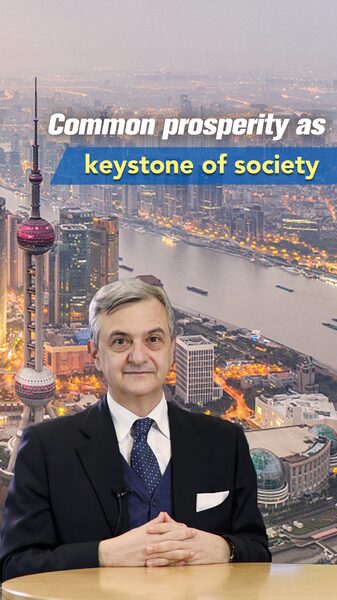Chinese President Xi Jinping has emphasized that common prosperity is not only an essential requirement of socialism but also a key feature of Chinese modernization. This vision underscores a people-centered development philosophy aimed at promoting shared well-being alongside high-quality growth.
Francesco Sisci, a Senior Researcher at Renmin University of China and former Cultural Counselor at the Italian Embassy in China, highlights the significance of this approach. \"Common prosperity is the keystone of any society,\" Sisci explains. He argues that social disparities can lead to animosity and hostility, making it crucial for China to foster a cohesive social structure. \"The well-being created over the past 40 years needs to be distributed more equitably,\" he adds, emphasizing that such distribution is vital for the country's future development and its role in the global community, given that China accounts for 20 percent of the world's population.
Sisci also touches on the importance of cultural exchange in promoting global diversity. He notes that as China evolves, it becomes more embedded in the world than ever before. This integration requires China to balance maintaining its traditional roots with embracing global values. \"If we just use our values to close off the rest of the world, it's a dying proposition. Conversely, embracing global values without holding onto our traditions would lead to a loss of identity,\" he states. This delicate balance is seen as essential for fostering mutual understanding and sustaining world peace and development.
Ultimately, Sisci believes that China's pursuit of common prosperity serves as a model for other nations aiming to achieve social equity and sustainable growth. By ensuring that economic advancements benefit all segments of society, China not only strengthens its internal cohesion but also contributes positively to global stability and prosperity.
Reference(s):
cgtn.com




